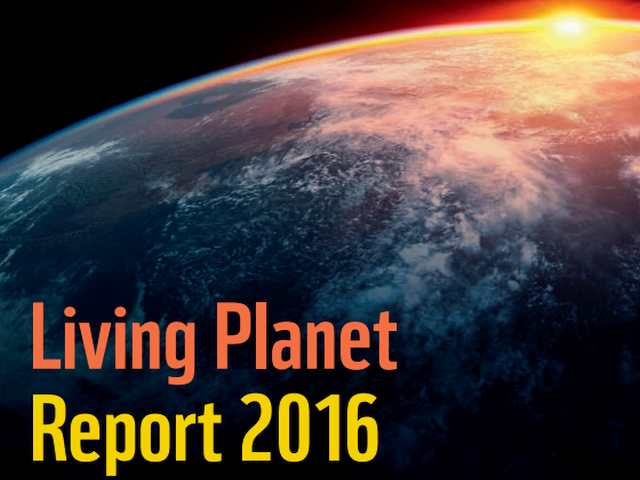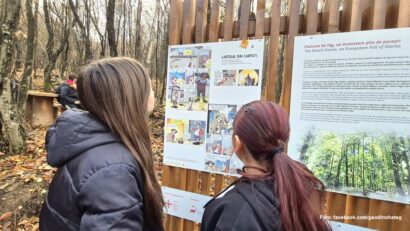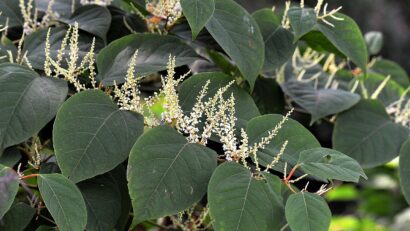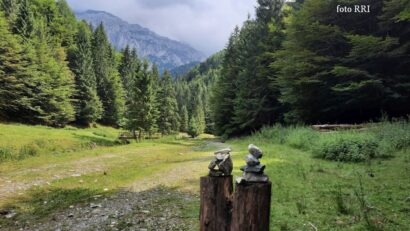The WWF Living Planet Report 2016
Global biodiversity is declining at an alarming rate, reveals the latest WWF Living Planet Report.

România Internațional, 25.11.2016, 13:03
The Living Planet Report 2016 published
by World Wide Fund for Nature and the Zoological Society of London says the
loss of biodiversity is just one of the warning signs of a planet in peril. 60%
of the vertebrates have gone extinct in the last 40 years alone. The most
affected animals are those living in forests, lakes, rivers and wetland areas.
Humans are guilty of all this, following the destruction of wild areas to use
the land for agriculture, poaching and extensive deforestation, thus decimating large
populations of Asian tigers, rhinoceros, African elephants, eagles and even
some species of fish. Pollution is another factor responsible for the
disappearance of certain species. A large amount of chemical substances is used
in agriculture, with a significant impact on wild species and habitats, either
directly or indirectly, through the pollution of soil and water. Killer whales
and dolphins in Europe’s seas suffer because of industrial polluters. One third
of the species of sharks and stingrays are already on the brink of extinction,
mainly because of excessive fishing. The WWF Romania director, Magor Csibi, has
further details:
What the report tells us is that if we
continue to live the way we do, if we continue to have the same impact on
nature, then we will witness the sixth mass extinction of wildlife on our
planet. The second conclusion is related to our entering a new geological era,
the Anthropocene. This means that if traces of meteorites or volcanoes 100
thousand years ago appear in rock strata now, similarly, millions of years from
now, the traces left by humans, starting with plastic or other forms of
pollution we currently produce, will appear in rock strata. This means that
humans now have an impact not only on their immediate environment, but they
affect the future of the planet both geologically and geomorphically.
According to the previous WWF report published in 2014,
the populations of wildlife species on earth have decreased by 50% in the past
40 years. The new report shows the trend continues:
Since 1970, in the past 46 years, we
have lost 58% of the planet’s total biodiversity. If this trend continues at a
fast pace we will lose even more, and in the following four years we will lose
two thirds of the total species living on the planet. These losses are not
uniform. There are areas which are more affected than others, for instance 80%
of sweet water biodiversity was lost in the past 46 years, as compared to 53% of
ground biodiversity. This means we continue to face a severe problem and run
the risk of loosing even well known species or those living close to us. More
often than not, when we think of extinction, we think of those already
endangered species, we think of tigers, African elephants or black rhinoceros.
This time, however, we’re talking about species much closer to us. For example,
the population of tuna, a type of food accessible throughout the planet, could
decrease in the following 10 years, only to disappear completely later on. One
of Romania’s typical flower species is the snowdrop, which could disappear from
the wildlife because too many people pick the flower in spring. Then there’s
the global problem of the bee population that has diminished dramatically and
unless measures are taken, it will be extremely unpleasant in the near future.
Researchers have
shown that humans need to change their behaviour and try to find solutions to
restore the ecosystems they depend on. Food waste reduction and replacing
fossil fuels with renewable energy sources are issues that will have to be
considered, if we want biodiversity to be saved. With details on that, here is
Magor Csibi once again:
We, the end
consumers, need to change our behaviour, we need to drastically reduce waste.
In agriculture, we see that problems are extremely serious. At the moment, we
feed on 12 species of plants and five species of animals, which means we have
replaced a vast majority of biodiversity on the planet with 17 species, which
will take its toll on the future of our planet. Agriculture poses the most
serious danger for forests. It is the main factor responsible for
deforestation, as 70% of water resources are used in agriculture. All this
causes over-consumption. Not to mention that we throw away much of the
foodstuffs we produce. Over one third of all the foodstuffs produced on the
planet are thrown away each year. In the energy sector, we’ve also got so much
to change. At this point, we’re speaking about our dependence on fossil fuels,
and if we don’t do anything about it, climate change will inevitably progress.
We’ve already received a signal that we are somewhere close to the limit.
The Living Planet Report 2016, which
assesses the health condition of our planet, also includes several examples of
species that have recovered thanks to conservation efforts made by man. One
example is the return of the lynx in France, whose population increased from 0
in 1970 to 108 specimens today. Similarly, the giant panda or the beaver are no
longer on the verge of extinction. As regards Romania, efforts are being made
so that the auroch may be reintroduced to its natural habitat.






























